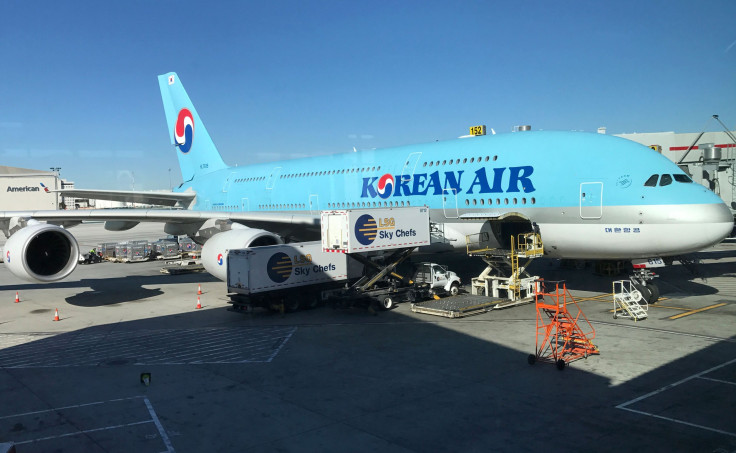Korean Air Faces Demise Due To Coronavirus Outbreak

KEY POINTS
- Korean Air has lost 80% of international capacity
- Last week, Japan barred passengers from South Korea
- Korean Air has already grounded about 100 of its 145 aircraft
The president of South Korea’s largest airline, Korean Air, warned that the ongoing impact of coronavirus poses a grave threat to the carrier’s very survival.
Woo Kee-hong told employees in an internal memo that due to virus-related travel restrictions imposed by other countries, more than 80% of the airline’s international capacity had been eliminated – versus a 18% cut during the 1997-1998 Asian financial crisis.
More than one-half of the world’s nations have barred South Korean passengers from entering. On Thursday, Japan, one of Korean Air’s biggest markets, joined that list.
“We can easily imagine the severity of the crisis we are facing… And what is more daunting is that the situation can get worse at any time and we cannot even predict how long it will last,” Woo said Monday.
Woo suggested that the airline will likely seek to cut costs by deferring investments, reducing operational expenses and by urging employees to take voluntary leave.
“But if the situation continues for a longer period, we may reach the threshold where we cannot guarantee the company’s survival,” he added.
A Korean Air spokesman told the BBC the purpose of the memo was "to encourage employees and ask for understanding to overcome the crisis together.”
"We have gone through numerous difficulties for the past 51 years, and I'm confident that we will overcome this crisis together," he said.
On Tuesday, Korean Air said it asked foreign pilots to take leave from April.
Korean Air also said it paid more in refunds than it received in ticket sales in February. In that month Korean Air suffered a 37.6% drop in passenger numbers on its international routes.
Korean Air has already grounded about 100 of its 145 passenger aircraft fleet, including all 10 of its A380 superjumbo jets (China Southern Airlines has already grounded five of its A380s).
Will Horton wrote in Forbes that these disruptions are worse for Korean Air than for Chinese carriers.
“Chinese airlines mostly focus on traffic to and from China with some international connections,” he wrote. “Such sixth-freedom transfer traffic is built into Korean Air’s business model. The weakening of one market has ripple effects across the rest of its network.”
[“Sixth freedom” refers to the right of airlines to carry passengers from a second country to a third country by stopping in one's own country.]
Horton noted that at Seoul Incheon International Airport, which is dominated by Korean Air, almost half of the passengers on North America flights connect to other Asian cities. About one-quarter of European and Asian passengers also connect in Incheon.
Horton added that Korean Air has long had shaky finances and does not enjoy the perks offered by state ownership, unlike the largest Chinese airlines which are already in talks for financial support from the Beijing government.
“The South Korean government has started some initiatives [with airlines] and is expected to propose more,” Horton wrote. “Many of the country’s smaller low-cost airlines have significantly or totally stopped international flying.”
On Feb. 17, Korea’s Ministry of Land, Infrastructure and Transport said it planned to help the beleaguered aviation industry with up to 300 billion won [$251 million] of loans and to grant a delay of payment for airport charges for three months.
But Horton added that while the prospects for many airlines around the world look bleak, Asian governments “appear unlikely to allow a major airline to go out of business only because of the coronavirus impact.”
On the whole, South Korea’s aviation industry is expected to incur losses of at least $4.2 billion by June, due to the virus.
Many of these expected losses arise from fixed monthly costs, i.e., aircraft leases, airport charges, office rents, among others.
The Korea Civil Aviation Association noted that the number of passengers flying on Korean carriers on international routes plunged by 65.8% in the fourth week of February. Passengers on flights to China dropped by 85.2%, while those on Japanese routes and Southeast Asian routes tumbled by 70.6% and 62.1%, respectively.
The Korea Centers for Disease Control and Prevention on Tuesday reported that it has confirmed 7,513 cases of coronavirus in the country, one of the largest numbers outside China.
© Copyright IBTimes 2024. All rights reserved.





















